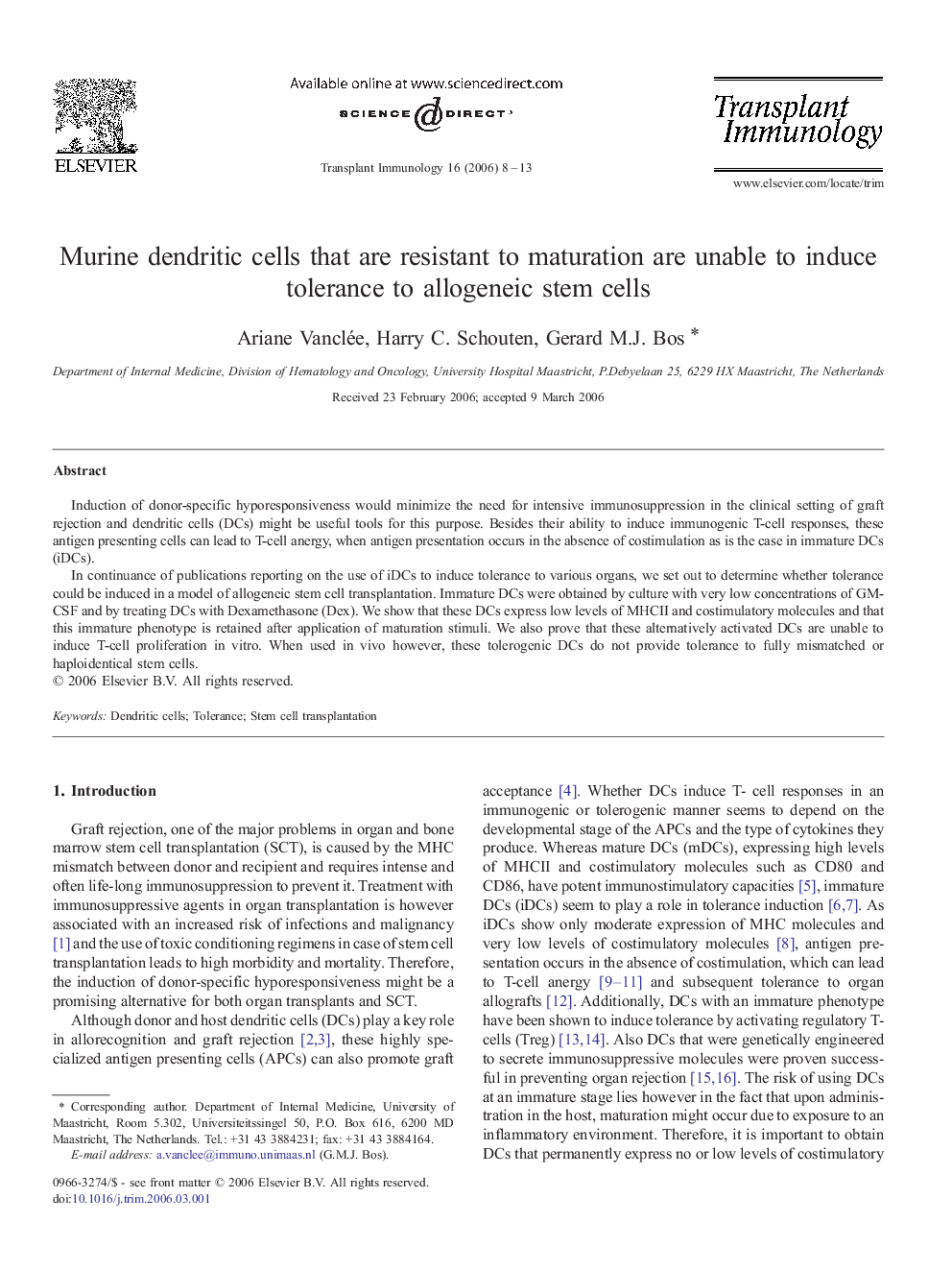| Article ID | Journal | Published Year | Pages | File Type |
|---|---|---|---|---|
| 3392670 | Transplant Immunology | 2006 | 6 Pages |
Induction of donor-specific hyporesponsiveness would minimize the need for intensive immunosuppression in the clinical setting of graft rejection and dendritic cells (DCs) might be useful tools for this purpose. Besides their ability to induce immunogenic T-cell responses, these antigen presenting cells can lead to T-cell anergy, when antigen presentation occurs in the absence of costimulation as is the case in immature DCs (iDCs).In continuance of publications reporting on the use of iDCs to induce tolerance to various organs, we set out to determine whether tolerance could be induced in a model of allogeneic stem cell transplantation. Immature DCs were obtained by culture with very low concentrations of GM-CSF and by treating DCs with Dexamethasone (Dex). We show that these DCs express low levels of MHCII and costimulatory molecules and that this immature phenotype is retained after application of maturation stimuli. We also prove that these alternatively activated DCs are unable to induce T-cell proliferation in vitro. When used in vivo however, these tolerogenic DCs do not provide tolerance to fully mismatched or haploidentical stem cells.
